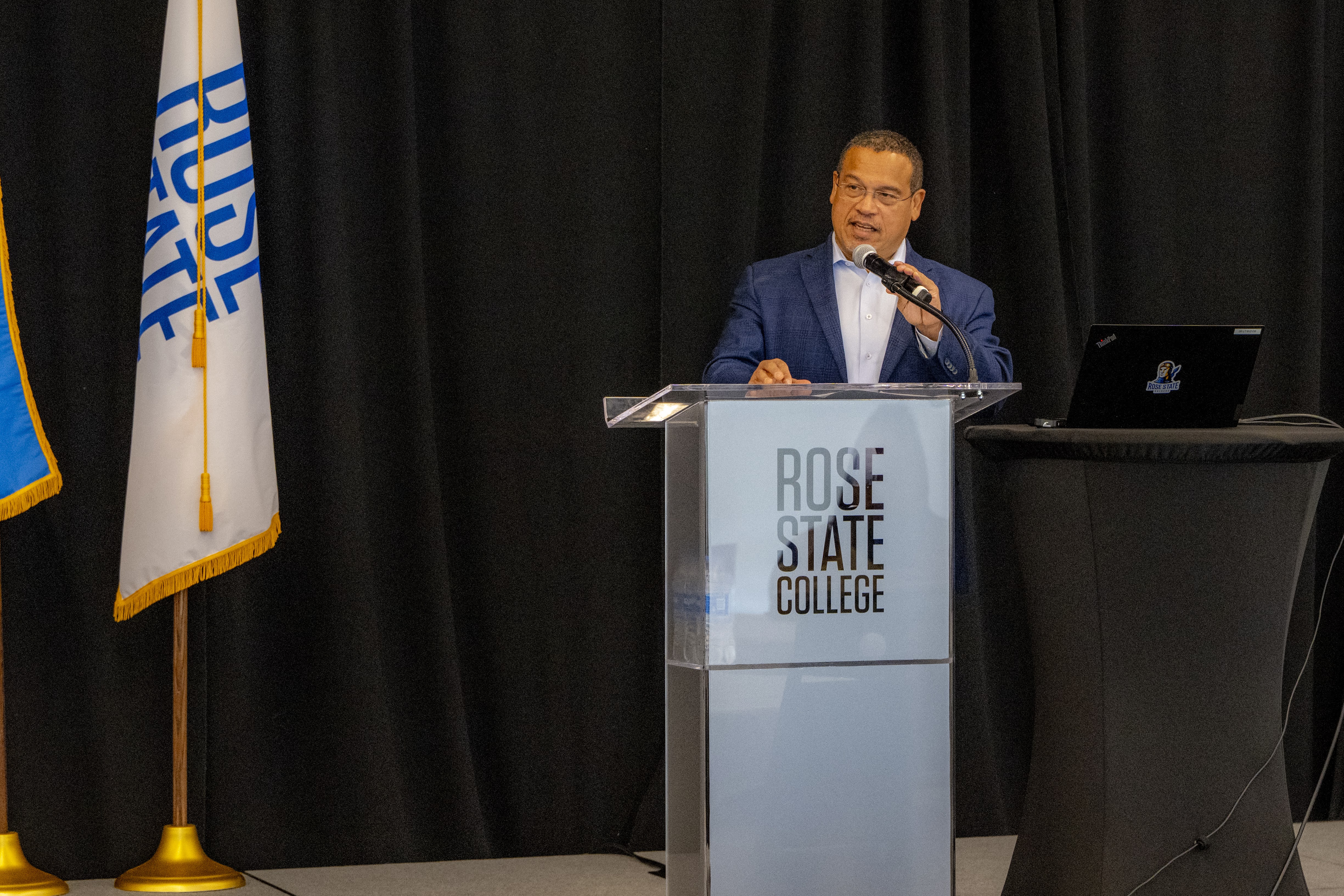Overview
Rose State College’s Engineering Program parallels the first two years of four-year college programs in engineering. Special attention has been paid to the mathematics, physics, chemistry and various engineering courses to ensure transferability. Graduates with good academic records are able to transfer to many four-year engineering colleges with junior standing.
Our primary goal is to prepare students by delivering second-to-none instruction and experiential activities that reinforce student learning. Our faculty is committed to providing a supportive learning environment and close collaboration with other institutions, industry and government strengthens our academic programs.
The Engineering Program faculty and division academic advisor have developed study plan flowcharts to assist students wishing to attend the University of Oklahoma in Norman or Oklahoma State University in Stillwater. These plans are designed to help students meet the requirement for an Associates Degree at Rose State College while maximizing transferability of credits with these baccalaureate institutions.
View the study plans.
Electrical/Computer Engineering
Electrical engineers are dedicated to finding innovative methods to use electricity, electronic materials, and electrical phenomena. Computer engineers design computer systems, both hardware and software, to create new technology.
The field of electrical engineering encompasses a very broad spectrum of technical areas, including computers and digital systems, electronics and integrated circuits, communications, systems and control, electromagnetics and electro-optics, energy conversion and power distribution, robotics, signal processing, solid state electronics, and photonics.
The field of computer engineering covers a wide range of computer related technologies including computer architecture, operating systems, communications, computer networks, robotics, artificial intelligence, supercomputers, computer-aided design, and neural nets. Both fields are oriented to meet societal needs.
Program Objectives
- Provide students with a background to solve engineering problems and address evolving technological challenges based on a solid foundation in electrical science and digital systems.
- Prepare our students with requisite math, science and engineering skills to enter a 4-year institution at the junior level.
Degree Requirements
Aerospace/Mechanical Engineering
Aerospace engineering focuses upon the challenges of flight. The proper aerodynamic shape, the correct engine for clean propulsion, the best materials for lightweight structures, and the safest control systems must be integrated to produce an efficient and economical flying machine. An interest in airplanes or spacecraft is often the primary motivation for starting a career in aerospace engineering.
Mechanical engineering is one of the most diverse and exciting branches of engineering. Its scope ranges from the design of very fine and sensitive instruments to the design of mammoth power plants. Mechanical engineering can encompass aerodynamics, lasers, high performance engines, electronic controllers, computer modeling and simulation, composite materials, and robotics. Mechanical engineering involves the creative design, manufacturing, testing, evaluation, and distribution of such devices as automobiles, prosthetic limbs, home appliances, spacecraft, all types of engines, air conditioning equipment, artificial organs, nuclear and fossil fuel power plants, controls, robotics, and many types of instruments.
Program Objectives
- Provide students with a background to solve engineering problems and address evolving technological challenges based on a solid foundation in static and dynamic systems and the material properties associated with mechanical systems.
- Prepare our students with requisite math, science and engineering skills to enter a 4-year institution at the junior level.
Degree Requirements
Aerospace/Mechanical Engineering Degree Requirements 2024-2025 (PDF)
General Engineering
The General Engineering option encompasses many engineering fields such as:
- Industrial Engineering
- Civil Engineering
- Environmental
- Petroleum
- Chemical
This degree option provides a broad background in engineering for students who are interested in areas other than Electrical, Computer, Aerospace, or Mechanical.
Program Objectives
Provide students with a background to solve engineering problems and address evolving technological challenges based on a solid foundation from available courses to support their chosen career field. Prepare our students with requisite math, science and engineering skills to enter a 4-year institution at the junior level.
Degree Requirements
General Engineering Degree Requirements 2024-2025 (PDF)





